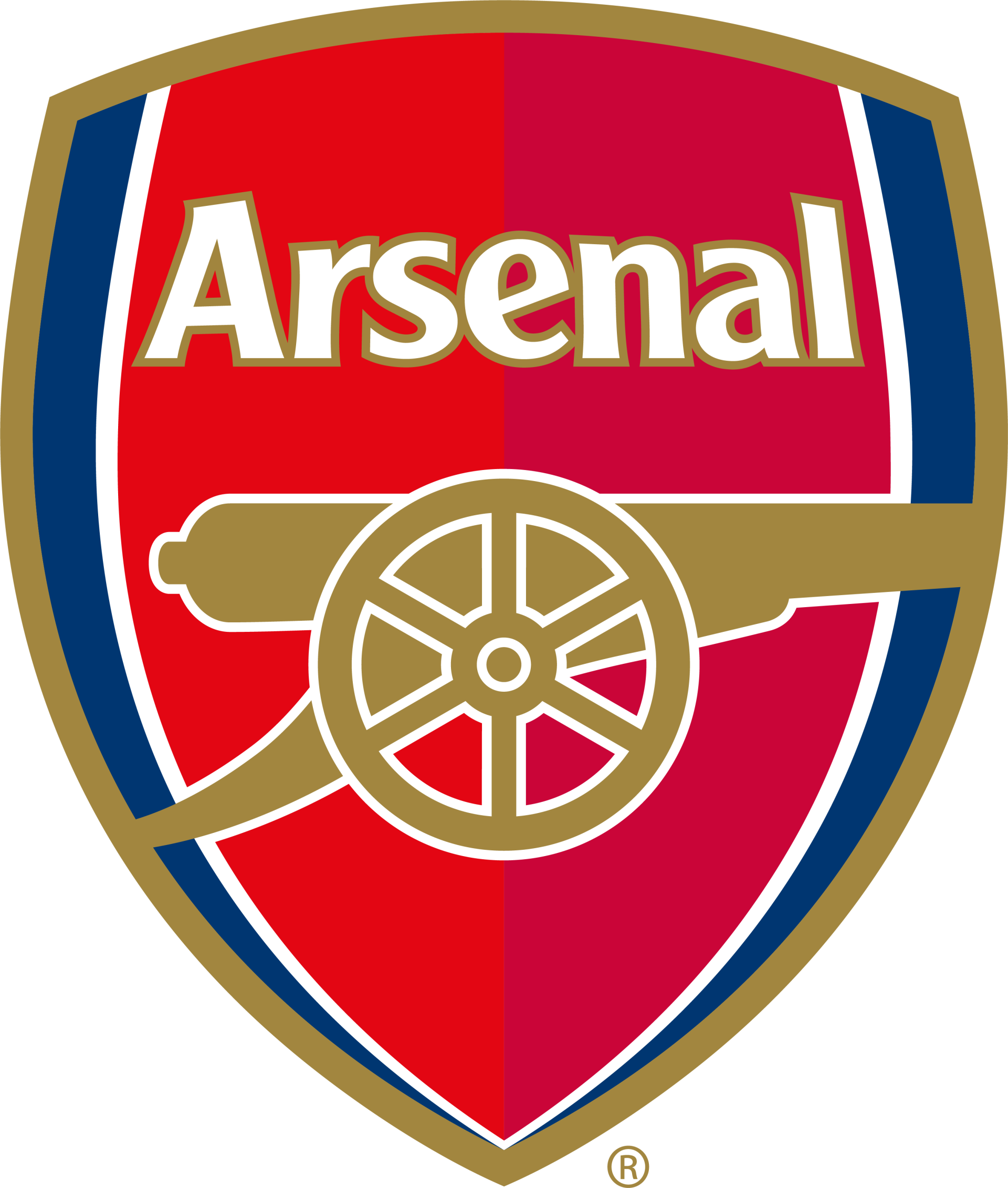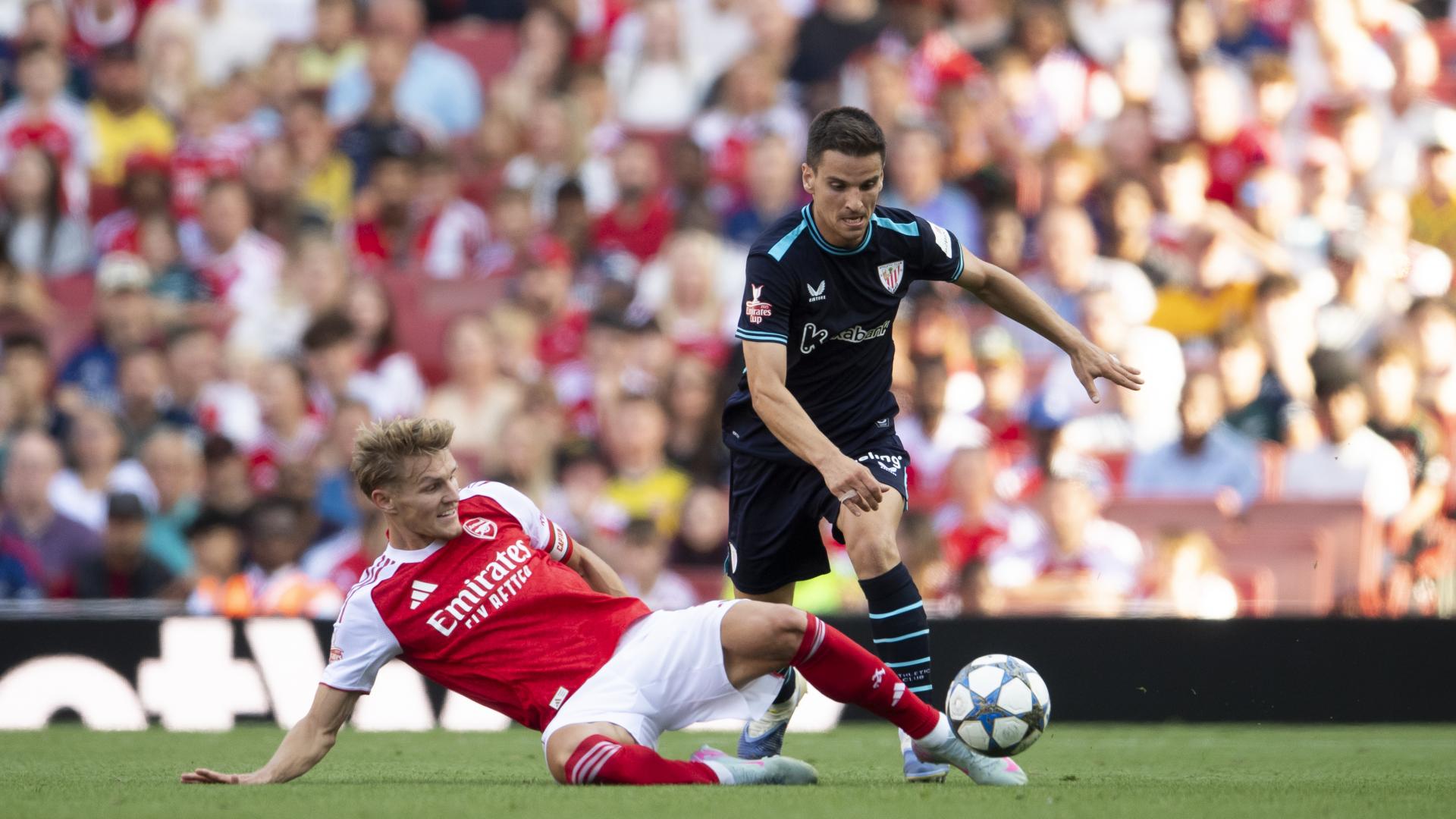
Match Pack: Athletic Club vs Arsenal FC (Champions League MD1)
Match Pack: Athletic Club vs Arsenal FC (Champions League MD1)
The Lions kick off the their Champions League campaign at San Mames against Premier League outfit Arsenal
It's time to hear that legendary anthem again. The Champions League returns to San Mamés.
Athletic will start their 2025/26 European campaign by facing one of last season's UCL semi-finalists, Mikel Arteta's all-powerful Arsenal FC.
The Gunners' squad features an array of top-level international players, including Basque footballers Martin Zubimendi, Mikel Merino and Kepa Arrizabalaga.
This is the Lions' first hurdle in our quest to qualify among the top 24 teams.
Match Info
San Mames, Bilbao
UEFA Champions League, League Phase MD1
Tuesday September, 18:45 CEST
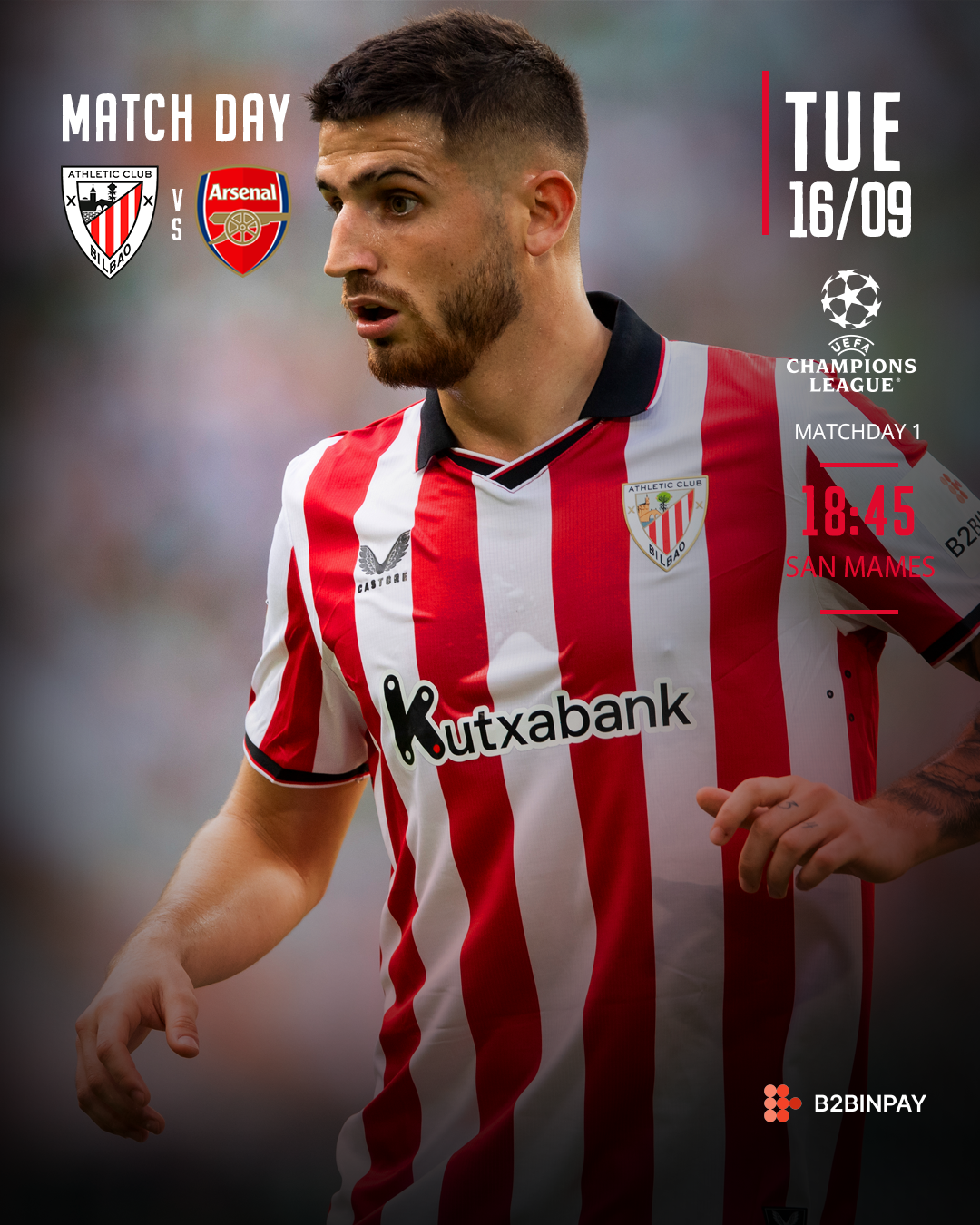
Team news
Ernesto Valverde has named a 23-man squad for Tuesday night's clash.
Valverde's and Iñaki's pre-match comments
Catch up with everything the gaffer and Iñaki had to say.
Arsenal FC are one of the most decorated clubs in English football, with their cabinet feauting total of 47 trophies, including 13 First Division titles, 14 FA Cups, two League Cups, 17 Community Shields and the League Centenary Trophy. They have won two continental trophies: the 1970 Fairs Cup and the 1994 UEFA Cup Winners' Cup.
In last season's Champions League, they fell in the semi-finals to eventual champions Paris Saint Germain. The Gunners reached the final in 2005/06, losing to FC Barcelona.
The London-based club was founded by employees of an arms factory in Woolwich in 1886 under the name “Dial Square”. When the club became a public limited company, they changed names to “Woolwich Arsenal” and became the first team in south London to be accepted into the Football League.
After a deep crisis, businessmen Henry Norris and William Hall rescued the Gunners from bankruptcy and moved the club's headquarters to the legendary Highbury, rebranding the team as “The Arsenal”.
In more modern times, Arsenal FC's fortunes changed dramatically with the appointment of Arsène Wenger in 1996. After many years of trying to become the leading club in England, the French coach's arrival heralded a golden age for the Gunners as he implemented innovative training methods and a new playing style.
The likes of Dennis Bergkamp, Patrick Vieira, Thierry Henry, Freddie Ljunberg, Robert Pires and Gilberto Silva, together with David Seaman, Tony Adams Ian Wright (Arsenal FC's all-time leading goalscorer until the arrival of Thierry Henry) and Ashley Cole, were key players as Arsenal won a host of trophies in the late 90s and early 2000s.
In the 1997/98 season, they won the double (a first top-flight title in seven years) and then they repeated the feat in 2001/02. They were also runners-up in the 1999/00 UEFA Cup.
In 2003/04, they won the title after going an entire season unbeaten, with that generation of players becoming known as 'The Invincibles'. From 7 May 2003 until 24 October 2004, didn't taste defeat at all.
Head coach:
Donostia-born Basque coach Mikel Arteta, who played for the club from 2011 until 2016, has managed Arsenal since 2019. In that time he has won an FA Cup and two Community Shields.
With the Gunners struggling to adapt in the post-Wenger period, Arteta's sole objective was to create a team that could once again compete for glory in the Premier League and the Champions League.
Under this pretext and with the wisdom acquired as Pep Guardiola's assistant coach at Manchester City, he won the FA Cup in his first season in charge. It is the only major title he won since becoming head coach.
However, Arteta has built an exceptionally strong and competitive side. So much so that Arsenal have finished as runners-up in the Premier League for three consecutive years, while they were knocked out of last season's Champions League in the semi-finals by eventual winners Paris Saint-Germain.
Standout players:
The Gunners' pool of talent is limitless, with a squad featuring internationals like David Raya, William Saliba, Gabriel Magalhães, Martin Odegaard, Mikel Merino, Declan Rice, Bukayo Saka, Gabriel Martinelli and Kai Havertz. What's more, this summer they brought in the likes of Kepa Arrizabalaga, Piero Hincapié, Cristhian Mosquera, Martín Zubimendi, Christian Nørgaard, Eberechi Eze, Noni Madueke and Viktor Gyökeres.
Arsenal have strength and depth in every position and no doubt Arteta gets real headaches when having to select his starting XI, but... what a blessed problem to have.
Basque lads:
There are three Basque-born players in the Gunners' squad: Zubimendi, Merino and Kepa. After England, the Basque Country, tied with Brazil, is the nation with most representatives in the Arsenal changing room. And let's not forget, of course, that Arteta is also Basque.
Arsenal captain Martin Odegaard also has ties to the Basque Country, having spent a season-long spell at Real Sociedad in 2019/20, where he played alongside Zubimendi and Merino.
Previous Meetings
Athletic Club and Arsenal FC have only faced each other once before - this summer's friendly match at the Emirates Stadium on 9 August.
On Tuesday evening, the Gunners will follow tradition in laying a bouquet of flowers next to the bust of Pichichi, which all new opponents do on their first visit to San Mames.
Athletic Club Women have played Arsenal twice. First in a 2004 Women's Champions League match in Stockholm that ended in a 2-2 draw and then again in 2013 as the Gunners were invited to San Mames for a commemorative friendly against the Lionesses, which we won 1-0.
How to Watch
Check out our global TV guide to make sure you don't miss the match.
You can also follow the fixture, and keep up to date with everything Athletic related, through the official Athletic Club app, as well as on our website and social media accounts:
Basque: @Athletic_eus
English: @Athletic_en
Spanish: @AthleticClub
www.facebook.com/ATHLETICCLUB/ (Spanish + Basque)
@athleticclub (Spanish + Basque)
Website
Basque: www.athletic-club.eus/eu/
English: www.athletic-club.eus/en/
Spanish: www.athletic-club.eus/
Related rivals
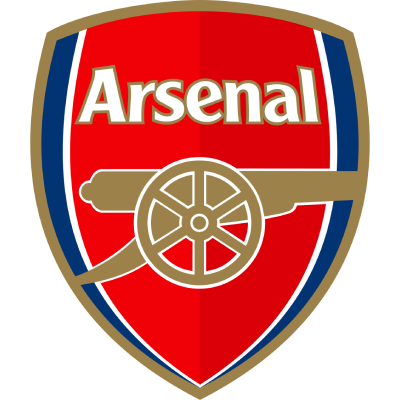
Related match
Athletic Club - Arsenal FC

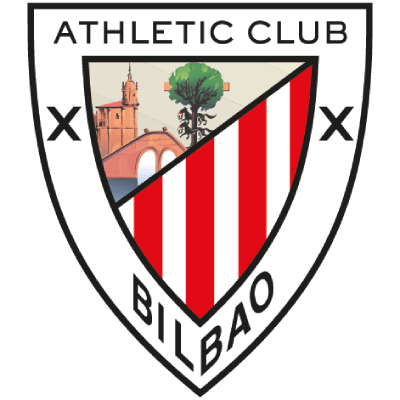


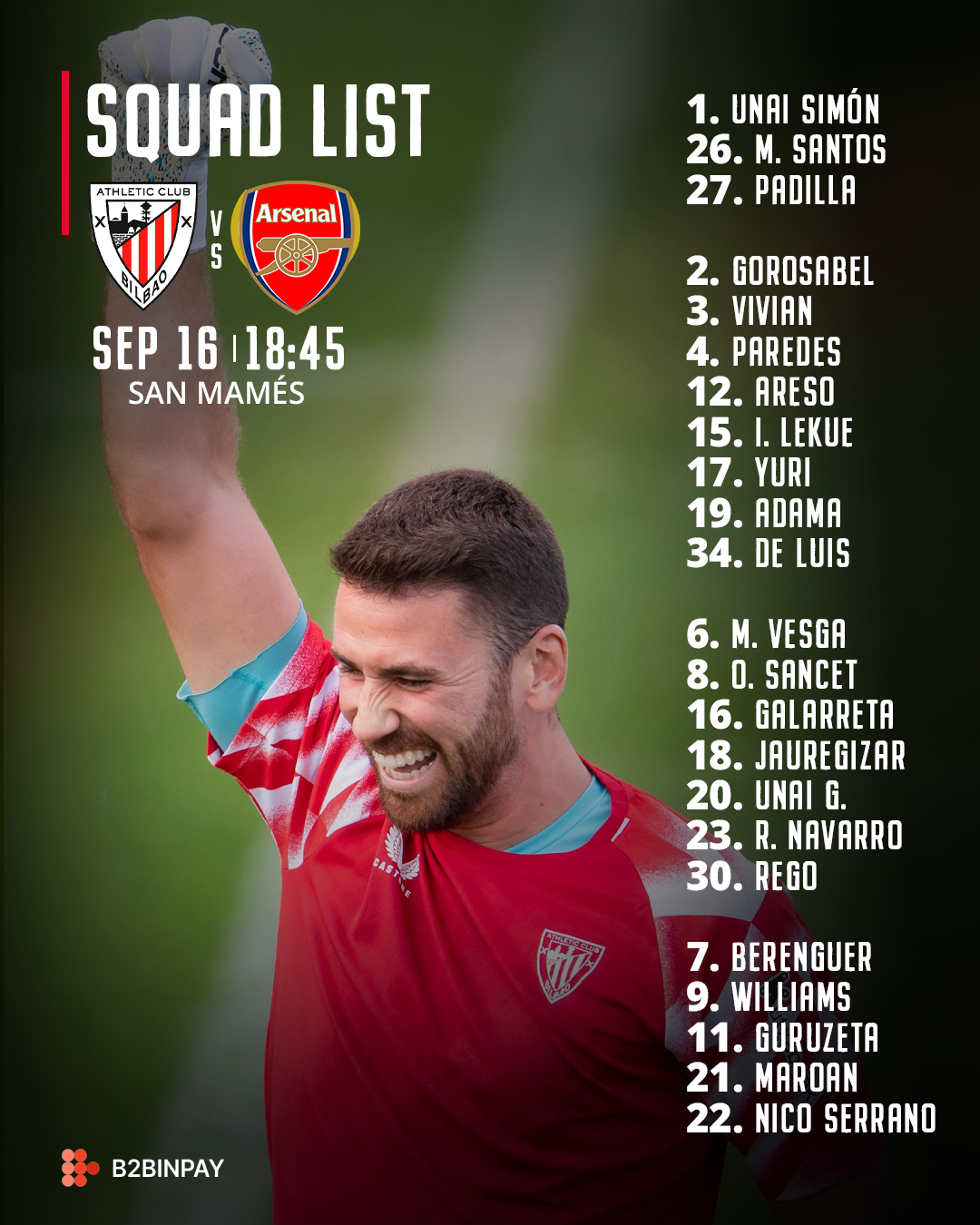
.jpg)
